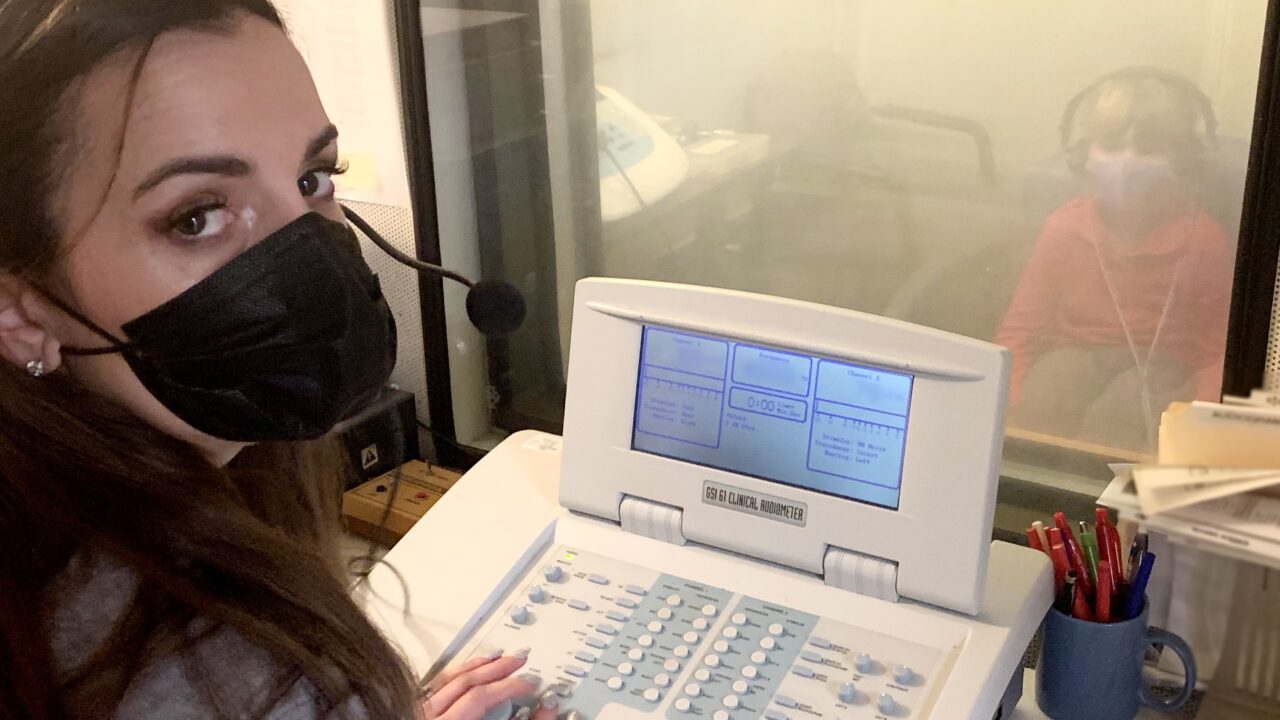Auditory Processing Disorder
In laymen’s terms, how would you describe APD?
Auditory Processing Disorder (APD) at the most basic level is when someone has difficulty understanding what they hear. There are many interpretations of the clinical term “APD” and what it entails, but it is essentially an inability or inefficacy in processing auditory input, specifically speech with normal peripheral hearing sensitivity in both ears.
What are some of the symptoms of APD?
-Difficulty hearing in noise
-Difficulty following conversation
-Difficulty following multi-step directions
-Requesting repetition/mishearing words
-Reading and/or spelling difficulties (phonetics/phonics)
-Many, many others
The potential problem with this list is it could describe MANY other disorders, most commonly attention deficit/hyperactivity disorder (AD/HD), autism spectrum disorder (ASD), language delay/disorder, cognitive disorder (low IQ), some neurological disorders, and many more! A thorough case history is essential to determine if these symptoms could be APD or if other similar diagnoses should be ruled out or explored first.
Who diagnoses APD and how is it diagnosed?
Here at NOSHC, we believe in a multidisciplinary approach to determining whether or not someone has APD. While APD is diagnosed by an audiologist in a sound treated booth, it does not mean it is the only testing necessary for treating your child. When an audiologist performs an evaluation for APD, several different tests are performed in a sound-treated booth which degrade the signal, requiring the brain to work very hard to break it apart and put it back together. It essentially tries to make the “brain break” with a very difficult input.
A neuro-typically developing (normal IQ, typical language development, none of the previously mentioned higher-level diagnoses) older child, teenager or adult can perform these tasks with minimal to no difficulty. A child with APD or other higher-level diagnoses will exhibit significant difficulty. The reason it is helpful to know if there is a higher-level diagnosis BEFORE performing these very difficult tests is the audiologist can tailor the testing to that person’s other diagnosis/diagnoses and ensure he/she is not being made uncomfortable by the difficulty level of the test.
In the vast majority of school-aged children, a very thorough speech/language/literacy evaluation is helpful PRIOR to an audiological APD evaluation because it can provide functional information regarding the child’s processing of speech input. NOSHC strongly recommends a comprehensive speech/language evaluation for all children suspected of having APD or processing difficulties, with a focus on phonological and language processing and reading.
Can you have APD if you have another global diagnosis?
In my professional opinion, you can have auditory weaknesses secondary to other global diagnoses, but not APD on top of a higher-level, more global diagnosis. There are differing opinions and theories as it refers to this, but in my experience when you address the higher-level diagnosis the auditory processing symptoms improve also.
What age can my child be tested?
Formal APD testing with an audiologist typically begins at 7 years old. There are several reasons for this, but the biggest are in a neuro-typically developing child the auditory system is only beginning to fully mature at 7 years old and is not fully mature until their teenage years.
Newer research suggests even younger children (7 or 8 years old) with milder auditory processing deficits may have more of a “delay” than a disorder, and once retested a few years later could be within normal limits. Note – this does not mean we should not intervene for these children! We just strongly recommend they be closely monitored during their adolescent years while the neurological system is still maturing.
Does this mean my child cannot be tested until they are 7? They are struggling now!
Absolutely not! Here at NOSHC we strongly encourage intervening as soon as possible; however, in a child younger than 7 the intervention looks a bit different. In a younger child we want to work on things which will prevent the need for a full APD evaluation down the road, and that entails looking at the symptoms and determining what age-appropriate evaluation is needed for that child. For children mis hearing words or leaving off the sounds of words, it is strongly recommended they be seen for a speech/language evaluation with an emphasis on phonological processing, which is an essential component to auditory processing. If they are not hearing you when you call their name from the other room, we first recommend a comprehensive audiological evaluation to rule out a hearing loss, and then an evaluation with a psychologist or a physician to rule out AD/HD. Essentially, there are many, many ways we can intervene with your younger child based on their auditory processing symptoms!
What should you do first if you think your child may have APD?
Call our office at (504) 897-2606 ext. 232 to discuss your child’s individual symptoms and situation. No two children are alike and at NOSHC we believe in tailoring an evaluation and treatment plan that fits your child’s deficits and needs. Whatever you do, do not trust Dr. Google!

